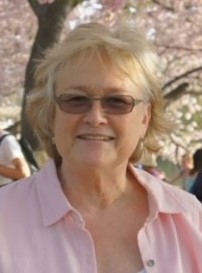
Advocate groups exist to fight for the freedom and rights of many groups in the United States, and Deborah Merrill, a current board member for the Kansas Advocates for Better Care as well as a member of the Health Quality Innovation Network’s (HQIN) Patient and Family Advisory Council, strives to build a stronger voice of advocacy for older adults.
Her knowledge of challenges faced in long-term care facilities is a culmination of her professional career and first-hand experience with family members. Merrill has witnessed the importance of advocacy for older adults while working with the Kansas Department of Aging and Disability Services (KDADS) and Advancing States in Washington, D.C. Her personal experience includes navigating the nursing home system to help her mother receive the best care possible until she died in November 2020. Her death occurred during the pandemic and Deborah was not allowed to see her in person for eight months until two days before she died.
Deborah attributes witnessing her grandmother’s difficult experience in a nursing home many years ago as a critical moment in realizing that older adults need advocates.
“I was still in a private business and not working in health care and I found that trying to navigate the system for her was really frustrating,” she said. “They kept telling her that she didn’t qualify for services. I was only able to help her a little.”
Soon after her grandmother’s passing, Merrill was asked to volunteer as an ombudsman, a position that allowed her to begin assisting older adults, and it eventually became a full-time position.
“I felt like my grandmother was guiding me,” Merrill said. “The more I helped people, the more I witnessed how important it was, and I wanted to do more especially with addressing regulations.”
Merrill believes the toughest issue facing long-term care facilities is staffing. She said there is a need for additional staff in nursing homes and they require more training.
“It’s a big problem and it’s been that way for a long time,” she said. “There is simply not enough staff even in the best facilities.”
Creating a stronger presence for advocacy groups representing older adults is an important piece to help long-term care facilities reach their full potential, according to Merrill. She encourages others to educate themselves and let their voices be heard to improve the lives of nursing home residents. Advocacy could lead to better transparency with ownership, improved training for staff, and create a support system that encourages residents to speak for themselves.
“No one knows how to negotiate the system until they are in it and even then, there is a big learning curve,” Merrill said. “Nursing home residents lived most of their lives budgeting money for daily expenses and even educating their children but many do not know how to take care of themselves later in life with services even such as receiving in-home care.”
